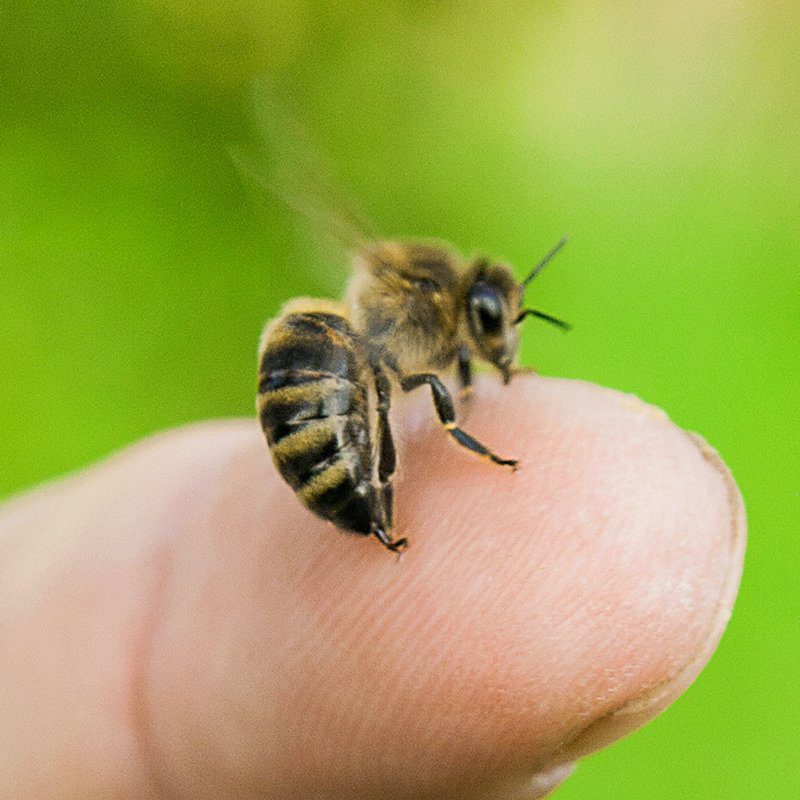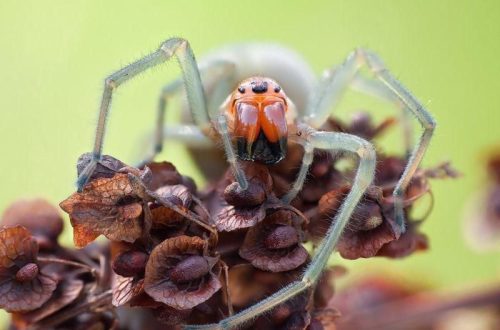
Why bees bite: what prompts them to do so
“Why do bees bite? some are anxious people. And this concern is understandable. because allergies for a bee sting – it’s not a joke! Let’s try to clarify this moment to save the future from this kind of trouble.
Contents
Why do bees bite: what are they encourages this
Of course, First of all, you need to understand the motives bees, and here’s what they can be:
- Most often, when answering the question of why bees bite, you can answer with one word – fear. A person is perceived as an enemy who can encroach on the bee family. And enemies need to be destroyed, and with lightning speed. Even if the passer-by did not think to destroy the nest, the fear of the insect is a strong driving force.
- Since an insect is a small creature compared to a human, it can easily be pressed down. And the bee will obviously not care what the cause of this trouble is. She will definitely consider that, for example, the hand that actually accidentally pressed her against the window wants to slam her. This is where self-defense comes into play.
- The bee can also get confused in something. For example, in the hair of a person or his clothes. If you can’t get out right away, the insect will become nervous and angry. Especially if the person at the same time will actively brush off. Due to fear, the bee will perceive such movements as a sign of aggression against itself. And, of course, he will hasten to release a sting in honor of this.
- A swarm of bees attacks only when their relative has died. During death, this insect releases a special substance that is designed to show other bees where the danger comes from. In other words, human skin begins, like a magnet, to attract the inhabitants of the surrounding hive. After all, they consider it their duty to drive the enemy away.
Under what conditions a bee will bite a person: let’s talk about risk areas
As you can understand, a bee is a peaceful creature in itself. She is not a predator who attacks in order to profit from something. By and large, bee attacks are made for one purpose – self-defense. Moreover, after such an attack, the insect, having said goodbye to its sting, is doomed to die.
But from the realization that the bee simply-simply is defended, of course, not easier, therefore Let’s try to understand how to reduce the risks:
- If your dacha is characterized by its proximity to the apiary, you should be on the lookout. And do not be mistaken that the beekeeper neighbor walks around without being bitten – this does not mean that his bees are kind. As we have already found out, they are in principle not malicious in nature. It only means that the beekeeper was able to find some approach to his wards. Insects are also unable to become attached to people. Therefore, one should not think that long-term living near the apiary gives some kind of protection.
- If a person emits an interesting smell for an insect, the insect will certainly want to make reconnaissance. The most important thing in this case is not to rush to dismiss it. Otherwise, in this case, the bee will definitely think that they want to kill her, and rush to the attack. It’s better to take it easy. And what can serve as such a pleasant smell? In addition to the floral and honey aroma, bees can be attracted to products containing propolis – toothpaste, for example, cream, hygienic lipstick.
- Markets are risk zones along with apiaries. Stalls with vegetables and fruits are especially attractive to bees.. Therefore, passing nearby, you must always remember that the movements must be smooth.
- Strong-smelling plants are taboo. It is better not to pass by them at all and not to plant them on your site. Because there is a great risk that insects will choose this area and will be able to perceive a person, again, under certain circumstances, as an enemy.
- The bright yellow color is also very attractive to these insects. For example, beds with pumpkins and zucchini are those places near which sudden movements are unacceptable.
- Oddly enough, even the time of day and the weather can affect the mood of the bees! The fact is that it is in the evening and in rainy weather that they all gather in the hive. Such crowding also gives rise to an aggressive perception of others. Therefore, the risk that the bees will want to recognize the enemy in a passer-by increases.
No in vain there is a saying that forewarned is forearmed. Of course, guaranteed to avoid a bee attack no, it’s an insect can insidiously sting, even when you don’t expect it. But still I would like to hope that this information will help reduce risks.





